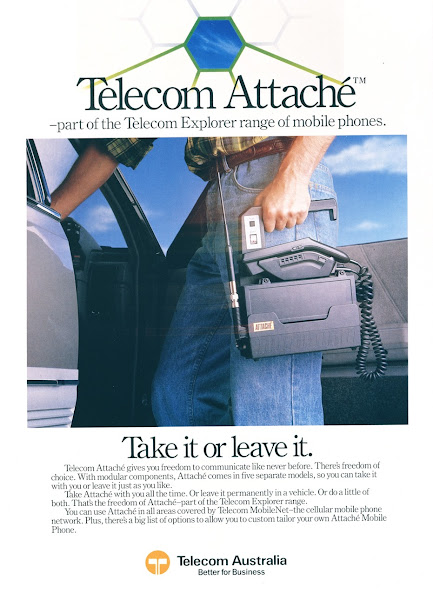Canberra Computer Accounting Systems was strictly a one-man business, just me and a telephone answering service. Those invisible girls at the answering service did a wonderful job for me as their ever-changing voices made my clients think they were dealing with a large computer software house. Only a few knew that I was working out of the spare bedroom in my house (later TWO spare bedrooms, with the wall knocked out between them).
And then came the "brick", so called because of its size and weight which, as the advert said, gave me freedom to communicate like never before. No need to rush to the nearest public telephone booth to return an urgent call from a client who had just paged me on my beeper.
Instead, I could remain seated in my folding chair by the banks of the Molonglo River, lift the "brick" and inquire if it was urgent enough to dry my feet, put my socks and shoes on again, and drive back into the city.
I must've been one of the first who queued up at Telecom's Fyshwick depot to have the "brick" installed which took all day as they ripped out the roof lining of my new Nile-blue TOYOTA CAMRY to string the cables from the receiver cradle between the two front seats to the antenna on the rear window and into the boot to the "brick", the battery pack.
It was well worth the several THOUSAND dollars, as the "brick" changed my (working) life, but suddenly there were many other cars (with many younger drivers) who sprouted little plastic "antennae" on their rear windows to make pretend-phone calls when the lights were on red.
The give-away that theirs was a $2-fake from a toy shop and that they were actually talking to themselves was the absence of a cable to the antenna on the rear window. Today we've gone from brick to slick, and the mobile phone is so ubiquitous that it is no longer a status symbol.
In fact, my status symbol is that I no longer need a status symbol. I've gone from having owned a "brick" to being a brick short of being slick.

